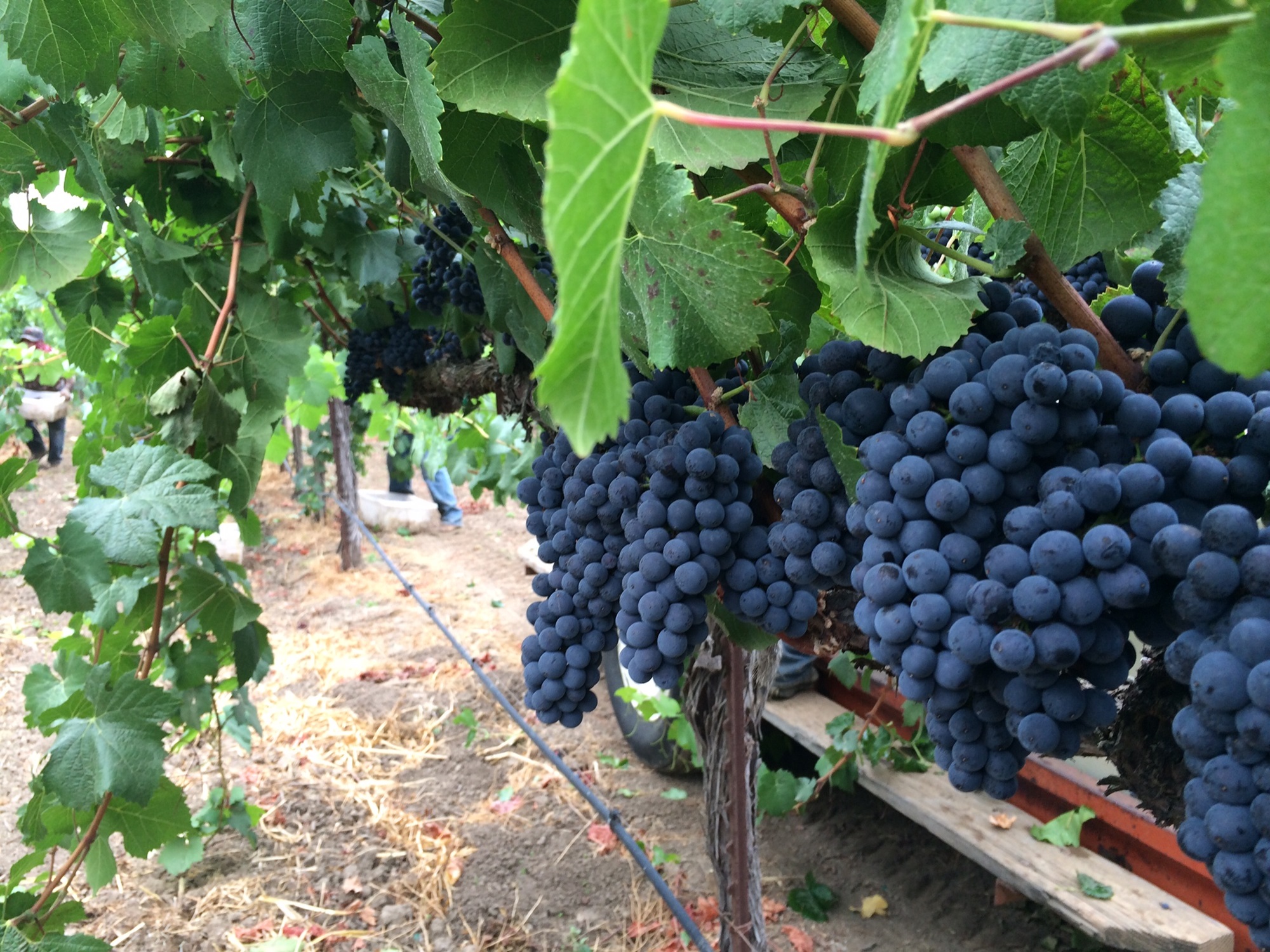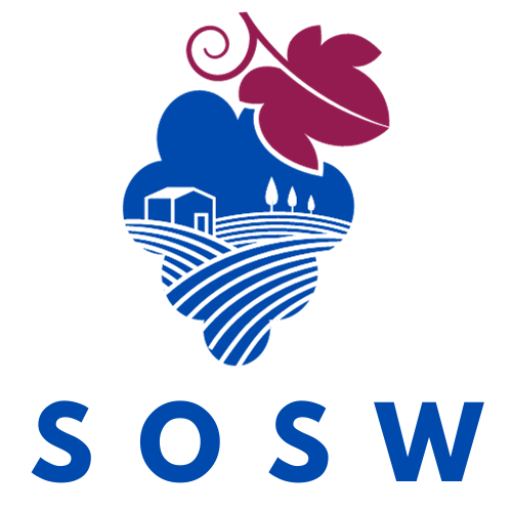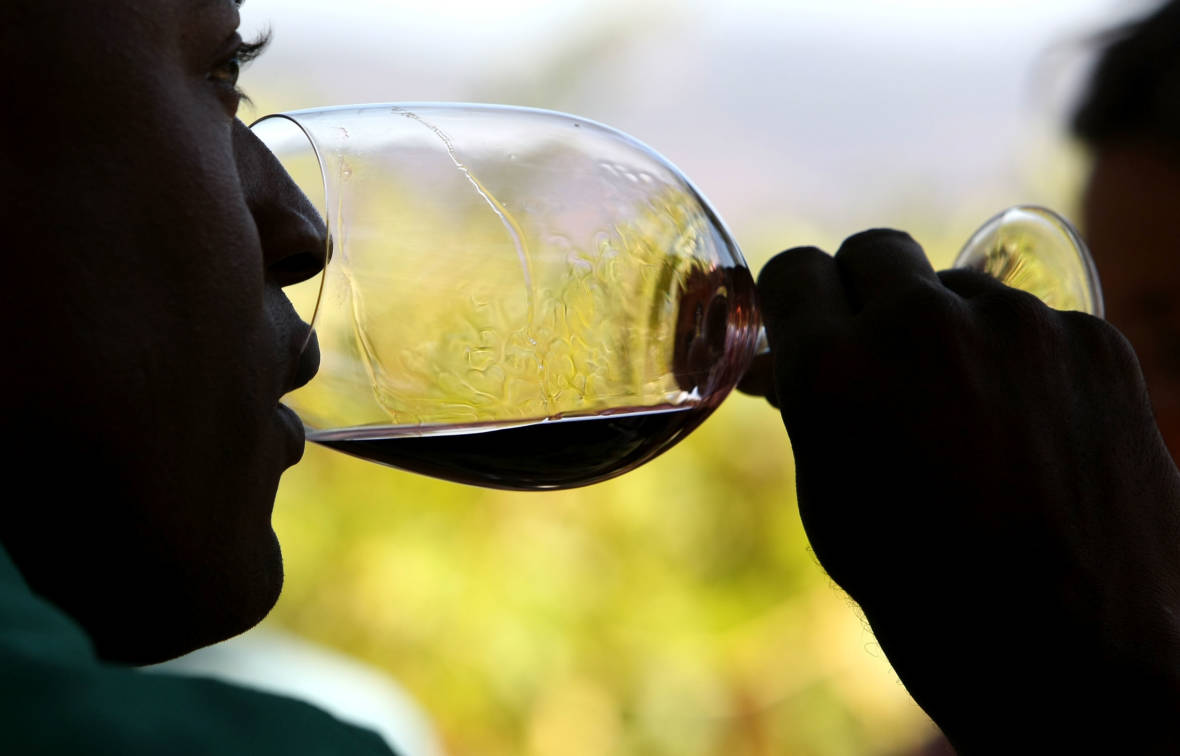Napa County’s six-year legal battle with a family-run winery is far from over — even after Hoopes Vineyard was ordered to close its doors for tastings.
Last month, the Napa County Superior Court ordered Hoopes Vineyard to suspend on-site wine and food service and some additional operations that had been at the center of a dispute over Hoopes’ small winery exemption. According to owner Lindsay Hoopes, the winery will be able to remain open for now, after the state’s 1st District Court of Appeal granted a temporary pause Friday on the trial court’s order while it determines whether that will cause “irreparable harm” to the business.
Hoopes is appealing the preliminary injunction that she says would force its closure, alleging that the county acted outside its jurisdiction by suspending functions that she believes fall under the state’s purview.
“It’s our perspective, it’s an excess of the trial court’s jurisdiction in telling us that we can’t any longer do those activities,” like wine marketing and tastings, Hoopes says. “They’re taking away rights that the [Department of Alcoholic Beverage Control] already gave, and a trial court can’t do that in the state. Only the ABC [department] and the Supreme Court can.”
Hoopes has been fighting with Napa over the legality of Hoopes Vineyard since at least 2020, when she first received a notice from the county over an apparent violation of the small winery exemption.
Her property is zoned under that old county policy, which allows small wineries to continue to operate without going through an expensive, arduous permitting process that applies to land in Napa’s highly protected agricultural preserve. But it comes with restrictions: small wineries under the exemption can’t hold public tours, events or provide wine tastings, according to the ordinance.
Napa County sued Hoopes and her winery in 2022, alleging that changes to the property’s use in recent years violated its limitations. Since 2017, Hoopes purchased the property, created “Oasis by Hoopes,” which introduced wine-tasting “experiences,” and invited guests to visit an on-site animal sanctuary and lounge at two Airstream trailers brought onto the site. She also applied for, and was granted, an Alcoholic Beverage Control winery license.
The county says that the small winery exemption program was designed so that low-impact vineyards could continue operating small farms, grow grapes, and produce and sell wine in a retail fashion without having to jump through the same hoops as larger, commercial operations. But if those properties made changes that could have environmental consequences, like allowing more guests and expanding the footprint, it would require a use permit, says attorney Arthur Hartinger, who is representing Napa in the case.
“They just can’t do these other kinds of things that bring more people onto the property and create impacts that have very serious potential consequences,” he told KQED in January.
Napa County Judge Mark Boessenecker agreed in November, saying that Hoopes gained an unfair advantage by expanding its business without a use permit. “Hoopes does not have to spend the money to upgrade its systems and comply with the law, while other, law-abiding wineries do,” he wrote.
While the court’s decision isn’t final since Hoopes’ cross-complaint is still pending, last month’s preliminary injunction would have forced the winery to shut down some operations.
That “would functionally prohibit us from making wine and selling wine in any capacity,” Hoopes told KQED.
Hoopes appealed the injunction on Feb. 21, and last week, she asked the appellate court to pause the injunction while that appeal decision is pending. According to a filing on behalf of the winery, the injunction would force it to recall its products from the market, prevent anyone outside of the business’ employees from drinking its wines, require changing its label and branding, and cancel customer reservations and distributor meetings. It also says Hoopes would have to stop making wine altogether since the winemaker is an independent contractor who can no longer drink Hoopes’ wine — “an integral part” of the process, according to the writ.

“It’s written so broadly that, like, our label would have been a violation of the court order,” Hoopes says. The winery’s label features the gold silhouette of a dog jumping through a hoop, and the injunction precludes the winery from using animals, like those in its on-site sanctuary, as “an attraction, enticement, or marketing activity” related to the winery.
Napa County spokesperson Linda Weinreich said the injunction addresses activities on Hoopes’ property that the trial court determined violated Napa County code and state law and that the winery is seeking to “continue to violate the law” until the case is finalized.
“This case is about ensuring compliance with the same regulations that apply to all wineries in Napa County — regulations that protect the integrity of the Agricultural Preserve and maintain a level playing field for the industry,” Weinreich said via email. “The County remains committed to upholding these policies in accordance with the Court’s final ruling.”
Hoopes also says that the injunction makes a larger error because her winery’s sales operations fall under the jurisdiction of the state Department of Alcoholic Beverage Control, which issued her a winery license in 2019. In 2021, Hoopes applied to expand the ABC-licensed premise to include an outdoor consumption area and got approval that indicated it was “not in conflict with the local zoning ordinances,” according to the court filing asking for the pause on the preliminary injunction.
“Because those permits have been issued, ABC has sole authority to regulate the scope of permissions,” it reads. “A trial court does not have jurisdiction to review the decisions of the ABC. By enjoining lawful ABC activities, the trial court exceeded its authority.”
It argues that the retail sale of wine to be drunk on and off the site — as well as wine tastings, samplings, and food service — are within the “exclusive authority” of the ABC.
Hoopes says the injunction invades the ABC’s authority by limiting wine tasting to the defendants and employees of the winery and barring serving food or wine on the site — leaving her business in the “crosshairs” of what the state can license and the county can regulate.
“I really feel like the attorney general should intervene in helping resolve that,” she told KQED. “It shouldn’t really be the onus of a small business owner to kind of help clarify the boundaries of where land use meets liquor licensing.
“It’s very difficult for small wineries to do that, but the impact is huge because it impacts all wineries throughout the state of California and definitely all the wineries in Napa.”
Under the new stay, Hoopes will be allowed to temporarily continue operating as it had before the injunction, while it waits for the appellate court to decide whether or not to grant a longer delay on the Superior Court order.
Weinrich said that the county is prepared to defend the preliminary injunction and that some of the information in Hoopes’ petition to the appellate court was “completely inaccurate.”
“The County is confident that once the appellate court reviews the correct factual record, it will dissolve the temporary stay of the injunction,” she said.
Napa can file an opposition before March 21, to which Hoopes can reply before March 28. After that, the court could issue a decision on the pause of the preliminary injunction without an oral argument.


